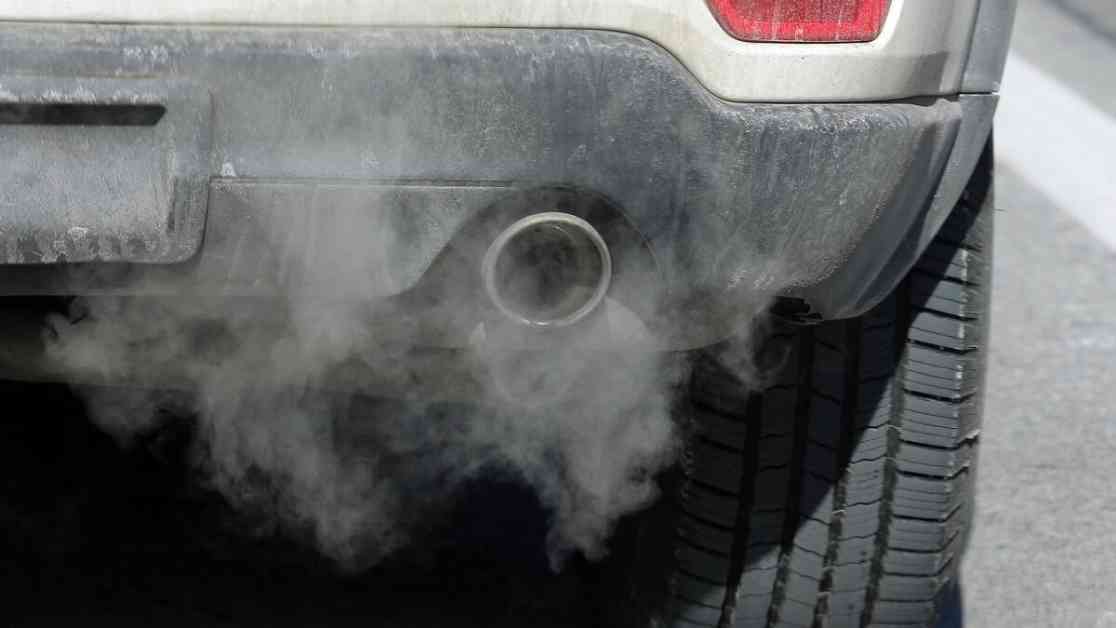COBB Tuning, a popular car parts manufacturer based in Austin, Texas, has recently been slapped with a $2.9 million fine by the U.S. Environmental Protection Agency (EPA) for producing and selling aftermarket accessories that led to excessive air pollution. The EPA accused the company of selling performance-boosting equipment that allowed customers to bypass air pollution laws, resulting in the release of smog-forming emissions and other pollutants above federal standards.
The company has agreed to pay the hefty fine to settle these claims. COBB Tuning has been in the spotlight since 2015 for selling around 90,000 illicit products, including exhaust systems that enabled vehicles to bypass pollution-stripping catalytic converters and software that enhanced engine combustion, according to the EPA.
Subheadings:
EPA Fines COBB Tuning for Violating Clean Air Laws
COBB Tuning’s Compliance Efforts and Response to EPA Investigation
Impact of Aftermarket Products on Air Quality and Regulatory Challenges
“Defeat devices significantly increase air pollution from motor vehicles, particularly in communities that already are overburdened by pollution,” said David M. Uhlmann, assistant administrator for the EPA’s Office of Enforcement and Compliance Assurance. “Use of illegal defeat devices has gone on for far too long. EPA will use all of its enforcement tools to hold polluters like COBB Tuning accountable until these illegal practices stop.”
The enforcement action against COBB Tuning is part of a broader effort by federal and state regulators to crack down on excessive pollution from emissions-cheating devices. Some of the largest emission-cheating scandals and penalties have involved vehicle manufacturers, such as Volkswagen’s 2015 Dieselgate scandal, where the German carmaker equipped nearly 500,000 vehicles in the U.S. with illegal software. Volkswagen paid a $2.8 billion criminal penalty as a result.
In a similar vein, engine manufacturer Cummins Inc. was fined for installing illegal software in 600,000 Ram pickup trucks, resulting in a $1.6 billion penalty. However, aftermarket products like those sold by COBB Tuning can be more challenging to regulate and track due to the proliferation of manufacturers, retailers, and installers in the market.
COBB Tuning officials have stated that the company fully cooperated with the EPA investigation and did not develop or market the products as emissions defeat devices. They claim that their product line is now fully compliant, with the California Air Resources Board determining that over 200 of the company’s products do not interfere with pollution controls and remain for sale.
“As a company, we take our emissions stewardship seriously and proactively addressed in real-time each area of concern that the EPA identified with how some of our legacy products could be used in an unintended manner,” said COBB Chief Executive Jeff King in a statement. “We had to make difficult choices along the way regarding how and when to make changes to or discontinue certain products that the EPA identified as concerning.”
Defeat devices are often sold to enhance engine performance by modifying engine combustion, air-flow ratio, and ignition timing. However, the downside is that the software can disable a vehicle’s emission controls and produce more air pollution. Typically, a vehicle’s computer detects when it might be producing excessive emissions by illuminating the check engine light and limiting the vehicle’s performance. The COBB defeat software had the ability to disable a check engine light and prevent “limp mode” limitations, according to the EPA.
The discontinued COBB Tuning exhaust pipes and illegal tuning software were manufactured for various vehicle brands, including BMW, Ford, Mazda, Mitsubishi, Nissan, Porsche, Subaru, and Volkswagen. The company is now allowed to continue selling tuning devices and software that California regulators have deemed compliant with pollution control laws.
COBB Tuning’s Compliance Efforts and Response to EPA Investigation
COBB Tuning’s response to the EPA investigation highlights the challenges faced by companies in the aftermarket automotive industry. While the company claims to have proactively addressed concerns raised by the EPA and made changes to ensure compliance, the case underscores the importance of stringent enforcement of clean air laws to protect public health and the environment.
The company’s assertion that it did not market the products as emissions defeat devices raises questions about the responsibility of manufacturers to ensure that their products do not contribute to air pollution. As regulators continue to crack down on emissions-cheating devices, companies like COBB Tuning must prioritize compliance with clean air laws to avoid hefty fines and reputational damage.
Impact of Aftermarket Products on Air Quality and Regulatory Challenges
The case of COBB Tuning sheds light on the broader issue of aftermarket products’ impact on air quality and the challenges faced by regulators in monitoring and enforcing compliance. With a wide range of manufacturers, retailers, and installers in the aftermarket automotive industry, ensuring that products do not contribute to air pollution can be a daunting task.
As consumers increasingly seek performance-enhancing accessories for their vehicles, regulators must ramp up efforts to prevent the sale of defeat devices that bypass pollution controls. Companies like COBB Tuning play a critical role in ensuring that their products comply with clean air laws and do not exacerbate air pollution in communities already burdened by environmental hazards.
In conclusion, the $2.9 million fine imposed on COBB Tuning serves as a reminder of the importance of enforcing clean air laws and holding manufacturers accountable for selling products that contribute to air pollution. Moving forward, greater collaboration between regulators, manufacturers, and consumers is essential to safeguarding public health and the environment from the harmful effects of emissions-cheating devices.



























